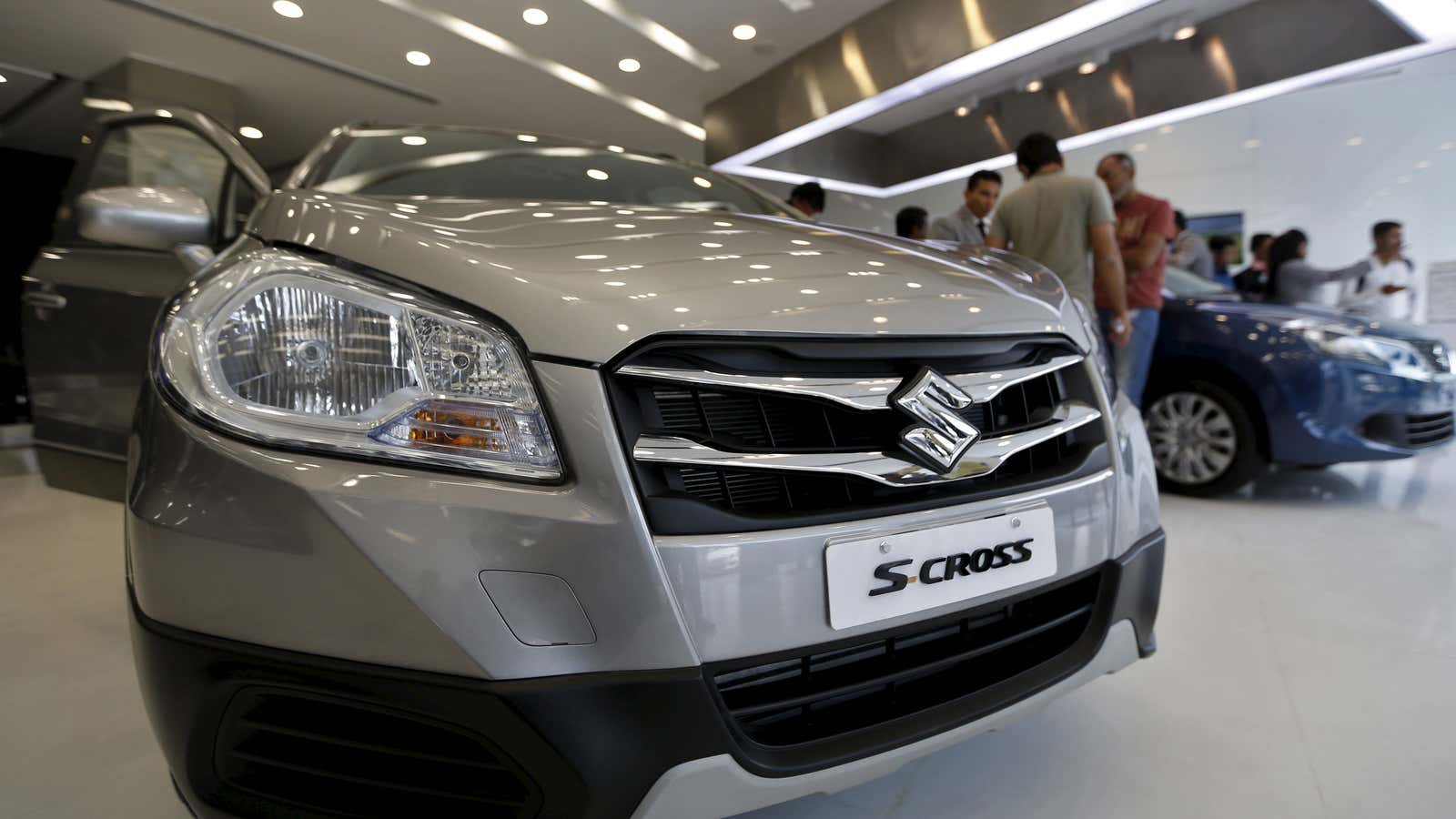April was a washout month for India’s ailing auto industry.
In a first, all major automakers, including Maruti Suzuki, Mahindra & Mahindra, Hyundai Motor, MG Motor, and Toyota Kirloskar, reported zero domestic car sales during the month due to the nationwide Covid-19 shutdown.
The nationwide lockdown, which started on March 25, forced all car dealerships and manufacturing units across the country to stop operations. The halt is costing the industry Rs2,300 crore ($306 million) per day, according to an estimate by industry body Society of Indian Automobile Manufacturers (SIAM).
Off the road
Sales in the country’s auto sector were moving downhill for most of the financial year 2020. Cumulative passenger vehicle sales in the year stood at 2.8 million units, dipping below the three-million mark for the first time since the financial year 2017, SIAM said in a report last month.
“While the (financial) year was already expected to end on a weak note, the pandemic and related countrywide lockdown, virtually decimated demand in March. All subsegments of automobiles posted their weakest annual numbers in the last 20 years,” Subrata Ray, senior group vice president of credit rating agency ICRA, told Quartz.
For instance, in March, market leader Maruti Suzuki’s domestic sales dropped 47.9% to 76,976 vehicles. At Mahindra & Mahindra, domestic sales had dropped 90% year-on-year to 6,130 in the month.
With the lockdown now extended beyond May 3, carmakers will continue to bleed.
“With no revenues, the industry across its value chain is in cash preservation mode, cutting costs wherever possible. Many dealerships have significant liquidity stress and face sustainability issues if lockdown is prolonged,” said Roy of ICRA. “In the commercial vehicle segment, small fleet operators are under significant stress. The smaller tier 2 and tier 3 component suppliers are also facing significant stress and may need support from original equipment manufacturers.”
Driving back to recovery
The sector’s recovery depends on post-coronavirus economic conditions. And things do not look good in the short term, say experts.
“Given that the nationwide lockdown will have severe implication on the economic growth, ICRA expects overall GDP to decline 10-15% in the first quarter of the financial year 2021. With the economy coming under severe pressure, discretionary purchases such as cars or real estate will take a significant hit,” Roy said.
With the lockdown now extended until May 17, the sector may continue to stay under pressure. “We expect the sector to start picking up June onwards. However, our observations say that once the lockdown opens we can see pent up demand and there will be a shift from ride-sharing to vehicle ownership, and a boost in pre-owned car ownership,” said Akshay Singh, vice president, strategy and enterprise of automobile marketplace and auto services company, Droom.
